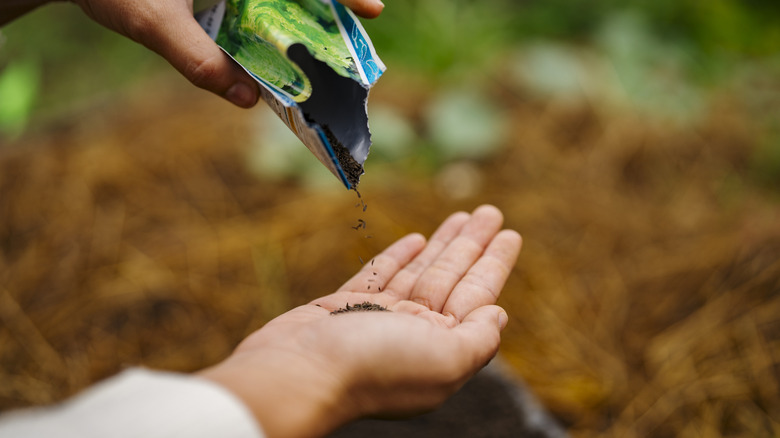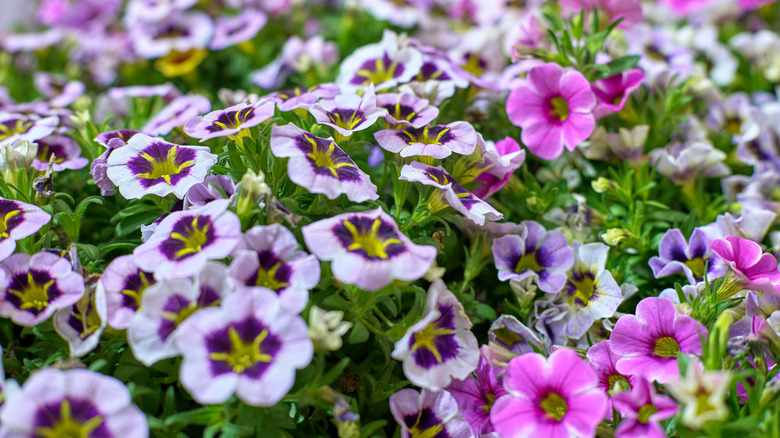Plant One Fast-Growing Flower In Early Fall To Instantly Beautify Your Garden Beds
Do you go into mourning at the end of summer? Sure, fall is full of charms, and many of them are pumpkin-related. But bidding farewell to butterflies, migrating birds, and — hardest of all — flowerbeds brimming with brilliant blossoms is a bittersweet goodbye. Stretch the summer a bit with colorful, often fragrant blooms that pop up quickly: petunias. These well-known flowers might be common, but that does little to diminish their collection of winning qualities.
Petunias come in scores of colors and forms: fuchsia, deep purple, white, striped, and more. There are even thrilling glow-in-the-dark petunias! Perhaps best of all, their jewel-toned trumpets will support hummingbirds during migration season. They are able to withstand colder temperatures in USDA Hardiness Zones 9 to 11, but you can grow them as annuals in cooler zones. Petunias aren't frost-tolerant, so if you still have a few months before the chill settles over your yard, direct seeding them in your garden can bring you extra floral joy until the first frost.
Take advantage of early fall weather by direct seeding petunias in a sunny, warm bed. Seeds can yield sprouts in as few as four days! If you're anxiously eyeing the calendar at the approaching first frost date, opt for a grandiflora variety. This type of flower may ease your nerves, since their seeds tend to sprout more quickly than other types of petunias. Still too nervous? Establish them in pots on your patio, and your petunias can join you inside once the mercury dips.
Planting and growing fall petunias
Scope out a sunny corner of your garden for your petunia seeds — one that gets six or more hours of sunlight per day. The teeny-tiny seeds need ample rays in order to sprout. Plant petunias in well-draining soil, since they are susceptible to root rot. In fact, petunias are decently drought-tolerant and thrive in heat once they're well-established. Before planting, presoak the seeds in water for 12 to 24 hours to speed up sprouting, and amend the soil with nitrogen for a bit more sprouting insurance. A bit of compost to boost the soil's fertility is a good idea, too.
Press seeds about ¼ inch into the soil, spacing them between 4 to 6 inches apart. Seeds germinate in a quick seven to 14 days in soil that lingers around 65 to 70 degrees Fahrenheit. Once the sprouts are looking robust, thin them to about 1 to 3 feet apart, depending on the variety, since mature plants like to spread. (Check the seed envelope for specifics.) Keep the soil moist until the seeds have sprouted. Once they've matured after about 10 to 12 weeks, the plants can get by with weekly deep watering. Keep your petunias blooming as long as possible with regular deadheading, and you could be savoring their beauty right up to frost time.

